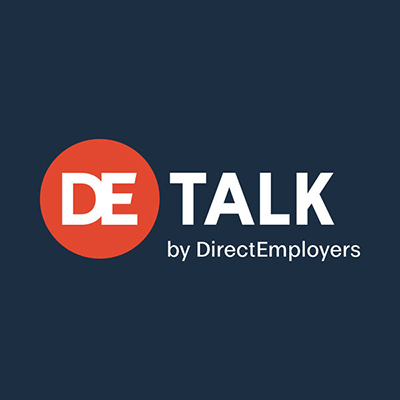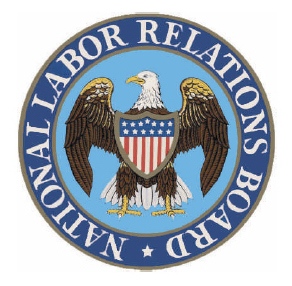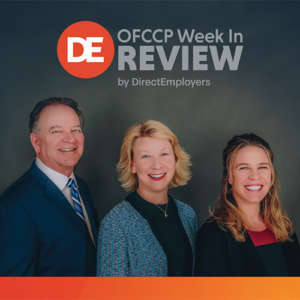April 22, 2020: Five State Fair Employment Practices Agencies Seek EEOC’s Component 2 Compensation Data (Late-Breaking!)

The issue is back. You knew it would be. The BNA Daily Labor Report last week unearthed an April 22, 2020 letter from the California Department of Fair Employment & Housing (DFEH), joined by four other state/city Fair Employment Practices Agencies (“FEPAs”), supplying formal written Comments registering two different oppositions to the EEOC’s (i.e., the “Commission’s”) Monday, May 23, 2020 Notice of Information Collection – Request for New Control Number and Approval of Collection: Employer Information Report (“EEO-1”) Component 1; Revision of Existing Approval for EEO-1 Component 2, EEOC-2020-0002-0001 (i.e., “Notice”).
See WIR: Monday, March 23, 2020: EEOC Officially Seeks to Drop Component 2
Here are the issues the FEPA Comments address:
- Opposition to the lack of a Component 2 data collection going forward: The California DFEH and the four piggybacking state/city agencies first lament the EEOC’s decision to quit collecting EEO-1 Component 2 “hours worked” and “pay data.” The California DFEH wrote:
“DFEH strongly opposes the EEOC’s Notice, which would end EEOC’s collection of, and therefore FEPAs’ access to, EEO-1 Component 2 pay data, as well as eliminate DFEH’s and all other state and local prosecutors’ historical and longstanding access to jurisdiction-wide EEO-1 information.”
All five FEPAs commented that they needed Component 2 data going forward to undertake studies of equal pay issues in their respective jurisdictions (even though Title VII itself prevents the EEOC and all FEPAs from making public any data the EEOC collects from employers and delivers to the FEPAs).
Moreover, in an effort signaling that “Blue State FEPAs” are going to attempt to start influencing EEOC policies with which they disagree, the five FEPAs also complained that the EEOC failed a duty they argued Title VII imposed on the Commission to “…consult and coordinate with interested state FEPAs in prescribing the recordkeeping and reporting requirements proposed in the [EEOC’s] Notice.”
- Opposition to the lack of access to the EEOC’s existing collection of Component 2 data: The five FEPAs also complained that the Commission’s Notice also ended a longstanding EEOC information-sharing practice which had allowed the FEPAs unfettered access to “jurisdiction-wide” EEO-1 data (meaning, for example as to California, that the Commission used to give the California DFEH for its use complete EEO-1 information for all employers with employees within the jurisdiction of California). The FEPAs quoted the Commission Notice reporting the EEOC’s current more limited position as to FEPA access to EEO-1 data:
“The EEOC’s current practice is to share EEO-1 data with a contracted FEPA only upon request and to share only EEO-1 data for an employer within the FEPA’s jurisdiction and only when that employer is a respondent to a particular charge (emphasis added) of discrimination cited by the FEPA in its data request. 85 Fed. Reg. 16347.”
NOTE: The other four FEPAs jumping on the bandwagon with the California DFEH are the Maryland Commission on Civil Rights, the Minnesota Department of Human Rights, the New Jersey Division on Civil Rights, and the New York City Commission on Human Rights.
What’s Next?
Prediction 1: Of course, the EEOC will reject these comments and persist with its decision to not continue to collect Component 2 “hours worked” and “pay data.” Moreover, the EEOC will also, of course, refuse to give the FEPAs the “jurisdiction-wide” EEO-1 data they are demanding.
Prediction 2: The FEPAs will wait to see if a Democrat wins The White House in November, which would then allow a Democrat President to cause the EEOC to within about two years of swearing in to re-start the Component 2 data collection and to both study the existing Component 2 data collection and disseminate it to the prying eyes of the FEPAs.
Prediction 3: You will soon hear about this “pay data access fight” in the coming Presidential election campaign as Democrats will allege that a pay gap exists for women, and the Trump EEOC is engaging in a “cover-up” to conceal the evidence of corporate wrongdoing.
Prediction 4: If President Trump wins re-election, you will then likely see some of the “Blue State” FEPAs file suit under their WorkSharing contracts with the EEOC to seek to compel access to the existing Component 2 data files. Oh, and don’t you know they will seek to file a Complaint in the federal District Court for the District of Columbia in an attempt to gerrymander assignment of the case to Judge Tanya Chutkan, of the Component 2 lawsuit fame, under the “related case doctrine” (which seeks to assign to new cases those judges previously involved with “related” legal issues).
Prediction 5: If President Trump wins re-election, you will almost undoubtedly see several FEPAs, led by the California DFEH, seek to put in place state-wide “hours worked” and “pay data” collection requirements for the employers subject to the state jurisdictions of the FEPAs.
NOTE: The states will use these threats to first attempt to convince employers that it would be better to agree to a federal bill authorizing a “national” data collection requirement, rather than have to face a crazy-quilt checkerboard of different and unique state data collection requirements.
So, the “pay data” ride is not over…it is only just beginning…again. Buckle your seat belts!
Tuesday, May 12, 2020: One Vacancy Open on Veteran Advisory Committee

The Committee is currently composed of 15 Members, in addition to ex-officio Members. Other veteran service organizations on the Committee include Disabled American Veterans, the Utah Department of Veteran Affairs, and the Veterans of Foreign Affairs.
The membership term will run through January 31, 2022, and the Committee’s responsibilities include to:
- assess the employment and training needs of veterans and their integration into the workforce;
- determine the extent to which the programs and activities of the Department are meeting such needs;
- assist the Assistant Secretary for Veterans’ Employment and Training (ASVET) in conducting outreach to employers concerning the training and skills of veterans and the advantages afforded employers by hiring veterans;
- make recommendations to the Secretary of Labor, through the ASVET, concerning outreach activities and the employment and training needs of veterans;
- carry out such other activities deemed necessary to make required reports and recommendations under section 4110(f) of Title 38, U.S. Code.
Nomination Process
Email nomination packages or additional questions to Gregory B. Green, Designated Federal Official, ACVETEO, at green.gregory.b@dol.gov subject line “2020 ACVETEO VSO Nomination.”
Wednesday, May 13, 2020: DE Talk: Preparing for a Reduction in Force

COVID-19 has rocked the world in more ways than many of us could ever imagine. While some industries are being pushed to the limits, others are struggling to hang on. No one looks forward to a reduction in force. Still, the current economic landscape is forcing many organizations to consider this option to have a chance to ride out this pandemic. Taking time to plan and prepare carefully can make the difference between a successful transition and a disaster.
Tune in to this conversation as Dana Deason of ArcBest and Candee Chambers of DirectEmployers discuss the nuts and bolts to help ensure your organization implements a RIF successfully and in a manner that is compliant and respectful of the individuals involved.
Friday, May 15, 2020: NLRB Hearings to Resume in June 2020

The Agency has since taken the necessary steps to acquire the licenses and equipment needed to conduct such hearings remotely using online videoconferencing technology.
Friday, May 15, 2020: Form I-9 Flexibility Extended

The original announcement was issued on March 20, 2020, and was set to expire on May 19, 2020. Because of ongoing precautions related to COVID-19, DHS has extended this policy for an additional 30 days.
THIS COLUMN IS MEANT TO ASSIST IN A GENERAL UNDERSTANDING OF THE CURRENT LAW AND PRACTICE RELATING TO OFCCP. IT IS NOT TO BE REGARDED AS LEGAL ADVICE. COMPANIES OR INDIVIDUALS WITH PARTICULAR QUESTIONS SHOULD SEEK ADVICE OF COUNSEL.
SUBSCRIBE.
Compliance Alerts
Compliance Tips
Week In Review (WIR)
Subscribe to receive alerts, news and updates on all things related to OFCCP compliance as it applies to federal contractors.
OFCCP Compliance Text Alerts
Get OFCCP compliance alerts on your cell phone. Text the word compliance to 55678 and confirm your subscription. Provider message and data rates may apply.

